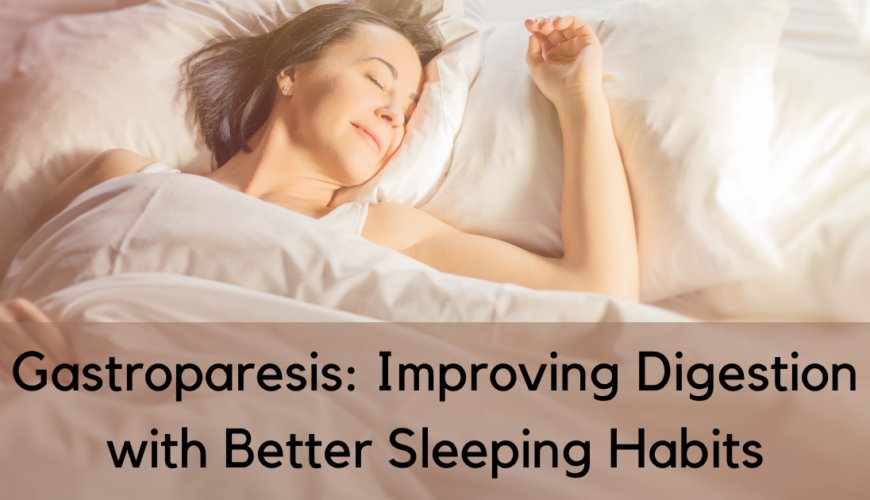Eating large portions of food may cause us to us feel full and ready for a restorative nap. For individuals with gastroparesis, a condition in which the stomach does not digest food in a normal amount of time, a person may feel full after only a few bites and can experience symptoms such as heartburn, acid reflux, nausea, and even vomiting.
These symptoms may also make it more difficult to fall asleep. Unfortunately, loss of sleep can also cause more indigestion issues and increase gastroparesis flare ups, so it is critical to allow time for the body to process food. But sleep itself won’t necessarily alleviate symptoms of gastroparesis; it depends on the position.
Did you know that stomach sleeping may increase the acid reflux in the stomach? This common sleeping position may exacerbate the symptoms of gastroparesis, causing additional sleep disturbances. Sleeping on one’s back may also cause a similar issue if the head is not properly elevated. So, what sleep position does aid in digestion? Side sleeping, specifically sleeping on the left side of the body, has been shown to help the digestion process of food at night, making rest more peaceful, and minimizing flare ups for those with digestive conditions.
There are also several other benefits to sleeping on your left side unrelated to the digestive system, including but not limited to:
- Reducing heartburn
- Improve brain health
- Reduce snoring
With the right supportive mattress, pillows, and positioning individuals living with gastroparesis may be able to find relief from gastroparesis symptoms and get a better night’s sleep. And if you’re a snorer, sleeping on your side may minimize snoring, providing relief to your partner as well!
Join a Gastroparesis Clinical Trial with Preferred Research Partners
If you or someone you know is living with gastroparesis, consult a medical professional for guidance. Preferred Research Partners in Little Rock, Arkansas is currently enrolling individuals with gastroparesis for a clinical trial. You may be eligible to receive care at no cost to you and contribute to the advancement of medical research. Learn more today to see if you qualify!



